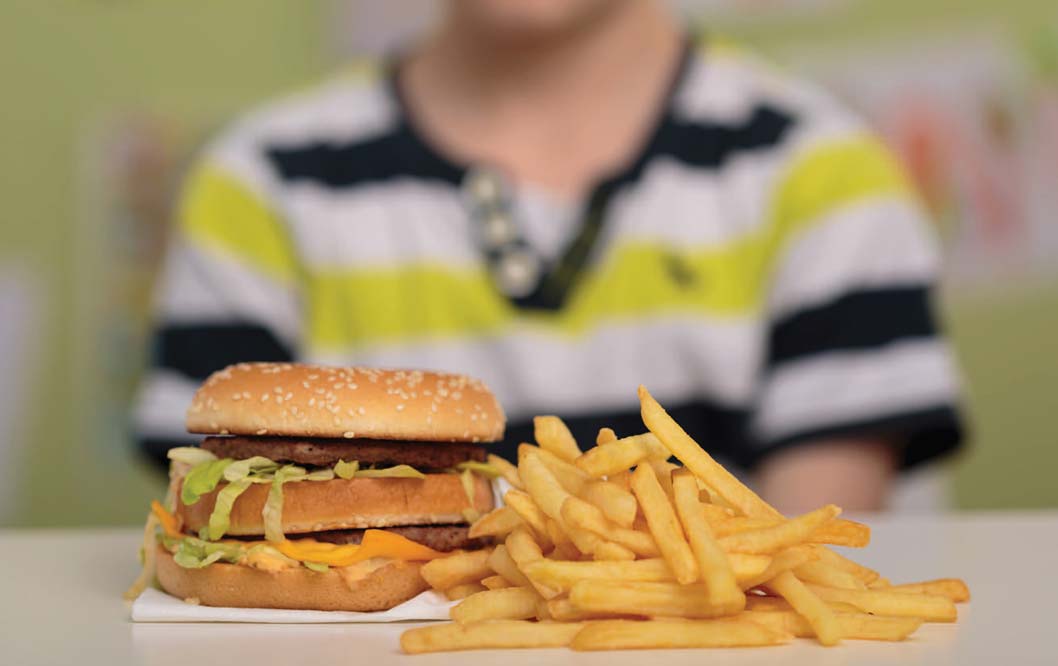Children are arguably our most precious commodity. As a society, we take great care in educating and developing their minds, as well as tending to their moral and ethical upbringing. But when evaluating their journey along the Mind/Body/Soul continuum, what is often left behind—or treated as an afterthought—is what their growing bodies need for optimal health.
One of the main reasons The Noble Path Foundation focuses on the importance of sound nutrition choices for our youth is the belief that if we raise healthy children, we won’t have to treat sick adults. Here are some sobering statistics that emphasize the need for early intervention:
Over the past 30 years, the number of children diagnosed as being overweight has increased by more than 100%. By the time they are in their 30s, many young adults already have advanced coronary atherosclerosis.
The term “adult-onset” diabetes has been replaced with “Type 2” because children as young as eight are now developing the disease, which can be devastating. A fifteen-year followup of children diagnosed with Type 2 diabetes found alarming rates of blindness, amputation, kidney failure, and death in young adulthood.
A series of studies beginning with a landmark article in 1953 concluded that 100% of children have evidence of fatty streaks in their arteries—which are the first stage of heart disease— by age ten. Once an obese child reaches age six, the odds are good they will remain that way for the rest of their lives. Even if they lose the weight in adulthood they remain predisposed to heart disease, cancer, gout, arthritis and early death.
Only about one in 2,000 U.S. adults meet the seven American Heart Association criteria for a heart-healthy lifestyle and of the 4,673 adolescents aged 12 through 19 that were studied, zero made the cut.
These dire numbers emphasize the importance of solid childhood nutrition. Paying attention to what we put on the end of our children’s forks can be the single best gift we could ever give them. No parent ever starts their day trying to intentionally harm their kids, yet many of us will unknowingly pour large amounts of highlyprocessed, sugary food-kibbles into their bowls as breakfast; order up a salt and fatladen meal from a drive-thru for lunch; and then celebrate a team win with a trip to the local pizza place for dinner.
The fast food trap many parents fall prey to is due in large part to the lack of choices. Our industrialized food system and Standard American Diet (SAD) has not only created food deserts—where fresh produce at fair prices is scarce if altogether nonexistent— but has also changed the very perception of what real food is.
The worrisome state of current affairs is that too many children eat three meals a day out of bags, boxes, plastic containers or cartons. Their young palates have become so accustomed to the constant overdose of sugar, salt, and fat, that the exquisite flavors of a perfectly ripened piece of fruit can seem dull in comparison. This is a culinary tragedy in super-sized proportions.
Take for example, kids meals. If I could wave a magic spatula and make this misguided part of the menu go away, I would in a healthy heartbeat. It pains me to see adults take time and great care in searching for a nutritious meal option, only to give a cursory glance at the back page and order the worst possible choice for their children: the ubiquitous hamburger, conveyor belt chicken nuggets, greasy pizza, fried corndogs, macaroni with food dyes and carboxymethylcellulose, french fries and some liquid candy. High in calories, low on nutrients and practically devoid of fiber, regular consumption of ultra-processed fare like this is why the Academy of Pediatrics’ latest recommendation is for all children to get their cholesterol tested starting between the ages of nine and 11.
Instead of kids meals, why not just have kid-sized portions? A smaller plate of pasta primavera, a half sandwich and soup, a bowl of quinoa topped with fresh veggies and grilled fish or lean protein? The sooner children learn to appreciate the myriad of flavors that freshly prepared produce provides, the sooner their young bodies will learn to crave real food that nourishes them in the best way possible. This is by definition, what I would call a “happy meal.”
In an effort to promote nutritious options for our kids while dining out, The Noble Path Foundation will be featuring restaurants that offer real food choices via these types of happy meals. Our local high school ambassador, Jack Hagen from San Clemente High School, is searching our communities for places that we can recommend as “healthy kidfriendly.” Look for his reviews on our Facebook and Instagram accounts (@TheNoblePathFoundation), and if you have a menu item or restaurant you’d like to recommend, please don’t hesitate to send us a message on either page.
By putting the focus where it should be—on creating generations of healthy kids to insure a healthy world—we can alter the way in which we approach our food. Two-time Nobel laureate Linus Pauling extolled the benefits of paying better attention to what we put in our bodies when he knowingly stated, “Good nutrition will prevent 95 percent of all diseases.” And while some of us love our food so much we live to eat, we give our children a fighting chance at long, healthy lives when we teach them how to eat to live.
Cindi is President and Founder of The Noble Path Foundation, a nonprofit 501(c)(3) dedicated to raising awareness on childhood obesity, T2 diabetes and the importance of sound nutrition and lifestyle choices for our youth.


